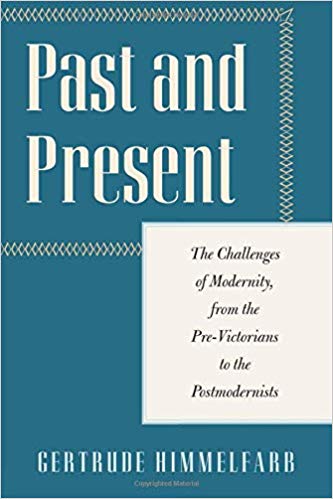Rex Krueger
Published 1 Jan 2020Some of the best (and most under-rated) books about woodwork.
More video and exclusive content: http://www.patreon.com/rexkrueger
Single-Topic Books (Amazon links are affiliate):
Making and Mastering Wooden Planes (Finck) [In print]: https://bit.ly/2Q7Pube
Woodwork as a System:
Japanese Woodwork Tools: Their Tradition, Spirit and Use (Odate) [In print]: https://amzn.to/36kLWIB
Hands Employed Aright: The Furniture Making of Jonathan Fisher (Klein) [In print]: https://bit.ly/2ZDgMtq
Furniture Collections:
The Pine Furniture of Early New England (Kettell) [In print, but cheaper used]: https://amzn.to/36axW3N
By Shaker Hands (Sprigg) [Out of print, but easy to find and cheap]: https://amzn.to/2MHuOor
Early American Antique Country Furnishings (Neumann) [Out of print, but cheap and easy to find]: https://amzn.to/2Qv7cEF
Subversive Books:
Make a Chair From a Tree: An Introduction to Working Green Wood (Alexander) [Out of print; hard to find]
Make a Joint Stool From a Tree (Alexander, Follansbee) [Updated version of Alexander’s other book; In print]: https://bit.ly/37nJKA1
Reference Books:
Understanding Wood Finishing (Flexner) [In print]: https://amzn.to/2tbRVAK
With the Grain: A Craftsman’s Guide to Understanding Wood (Becksvoort): [In print]: https://bit.ly/2ZCQQOz
Other Favorites:
Country Furniture (Watson) [In print, but MANY used copies out there]: https://amzn.to/369Zvdr
The Practical Woodturner (Pain) [Out of print but cheap and easy to find]: https://amzn.to/35aMVtp
The Practical Woodworker (Jones) [In Print. Huge and cheap]: https://amzn.to/2rE31hi
The Handplane Book (Hack) [In print]: https://amzn.to/37n6Bvv
Workbenches: From Design and Theory to Construction and Use (Schwarz) [In print]: https://amzn.to/35bpcZS
Plans, t-shirts, and hoodies: http://www.rexkrueger.com/store
Get my woodturning book: http://www.rexkrueger.com/book
Follow me on Instagram: @rexkrueger
January 2, 2020
Five types of books for better woodworking
Divine Caesar Augustus, Master of Propaganda – January 1, 2020 – TimeGhost of Christmas Past Day 9
TimeGhost History
143K subscribers
Dissent This
Julius Caesar was already associated with the Divine during his life. But two years after his death, he was officially declared so by the Senate of Rome. Very much to benefit of his cousin, Octavian.Join us on Patreon: https://www.patreon.com/TimeGhostHistory
Hosted by: Indy Neidell
Written by: Joram Appel
Directed and Produced by: Spartacus Olsson and Astrid Deinhard
Executive Producers: Bodo Rittenauer, Astrid Deinhard, Indy Neidell, Spartacus Olsson
Creative Producer: Joram Appel
Post-Production Director: Wieke Kapteijns
Research by: Joram Appel
Edited by: Karolina Dołęga
Sound design: Marek KamińskiSources:
Wellcome Library no. 42647i
Calendar by Lorena Salagre from the Noun ProjectMusic from Epidemic Sound Library:
“A Sleigh Ride Into Town” – Howard Harper-Barnes
“Ancient Saga” – Max Anson
“Thunder Storm 01” – Fredrik EkstromA TimeGhost chronological documentary produced by OnLion Entertainment GmbH.
From the comments:
TimeGhost History
1 week ago
Happy New Year! We have some amazing videos coming up in the new year, but not before we publish the final instalment of our TimeGhost of Christmas Past episode. This one is my personal favourite, as I’m a huge fan of the late Roman Republic and early Empire as a historical study object. So when we were dividing the Christmas episodes among the research team, I fought for this one to be on the list. I had a blast writing it (surprisingly, I don’t get to write about Caesar that often for the WW2 Channel) and I hope you all enjoy watching it.
Cheers,
Joram
The 2010s … the best decade (so far) in human history
Matt Ridley explains why, despite all the doom and gloom in the daily headlines, the last ten years have been the best by almost any measure:
Let nobody tell you that the second decade of the 21st century has been a bad time. We are living through the greatest improvement in human living standards in history. Extreme poverty has fallen below 10 per cent of the world’s population for the first time. It was 60 per cent when I was born. Global inequality has been plunging as Africa and Asia experience faster economic growth than Europe and North America; child mortality has fallen to record low levels; famine virtually went extinct; malaria, polio and heart disease are all in decline.
Little of this made the news, because good news is no news. But I’ve been watching it all closely. Ever since I wrote The Rational Optimist in 2010, I’ve been faced with “what about …” questions: what about the great recession, the euro crisis, Syria, Ukraine, Donald Trump? How can I possibly say that things are getting better, given all that? The answer is: because bad things happen while the world still gets better. Yet get better it does, and it has done so over the course of this decade at a rate that has astonished even starry-eyed me.
Perhaps one of the least fashionable predictions I made nine years ago was that “the ecological footprint of human activity is probably shrinking” and “we are getting more sustainable, not less, in the way we use the planet”. That is to say: our population and economy would grow, but we’d learn how to reduce what we take from the planet. And so it has proved. An MIT scientist, Andrew McAfee, recently documented this in a book called More from Less, showing how some nations are beginning to use less stuff: less metal, less water, less land. Not just in proportion to productivity: less stuff overall.
This does not quite fit with what the Extinction Rebellion lot are telling us. But the next time you hear Sir David Attenborough say: “Anyone who thinks that you can have infinite growth on a planet with finite resources is either a madman or an economist”, ask him this: “But what if economic growth means using less stuff, not more?” For example, a normal drink can today contains 13 grams of aluminium, much of it recycled. In 1959, it contained 85 grams. Substituting the former for the latter is a contribution to economic growth, but it reduces the resources consumed per drink.
As for Britain, our consumption of “stuff” probably peaked around the turn of the century — an achievement that has gone almost entirely unnoticed. But the evidence is there. In 2011 Chris Goodall, an investor in electric vehicles, published research showing that the UK was now using not just relatively less “stuff” every year, but absolutely less. Events have since vindicated his thesis. The quantity of all resources consumed per person in Britain (domestic extraction of biomass, metals, minerals and fossil fuels, plus imports minus exports) fell by a third between 2000 and 2017, from 12.5 tonnes to 8.5 tonnes. That’s a faster decline than the increase in the number of people, so it means fewer resources consumed overall.
H/T to Damian Penny for the link.
Tank Chats #57 Churchill AVRE | The Funnies | The Tank Museum
The Tank Museum
Published 20 Sep 2018Another episode in the Tank Chats Funnies Specials, with David Fletcher looking at the weird and wonderful vehicles of 79th Armoured Division led by Major General Percy Hobart, known as “Hobart’s Funnies”.
The Churchill AVRE (Armoured Vehicle Royal Engineers). The Churchill was the basis for a number of Funnies. David Fletcher looks at the Fascine, Bobbin, Small Box Girder bridge, Bullshorn plough, Conger, the Churchill ARK and Bridgelayer.
Support the work of The Tank Museum on Patreon: ► https://www.patreon.com/tankmuseum
Or donate http://tankmuseum.org/support-us/donateVisit The Tank Museum SHOP: ► https://tankmuseumshop.org/
Twitter: ► https://twitter.com/TankMuseum
Tiger Tank Blog: ► http://blog.tiger-tank.com/
Tank 100 First World War Centenary Blog: ► http://tank100.com/ #tankmuseum #tanks #tankchats
QotD: Anime
From a conversation elsewhere:
Friend A: “Anime by itself isn’t supposed to be cringy. There’s lots of good anime out there.”
Friend B: “Intentional or not, that’s the effect on me.”
Friend A: “Well, what anime have you watched?”
Friend B: “Let’s see… Pantyflash Crisis, Fanservice High School, and Animal-Eared Preteens, I believe.”
I laughed so hard I nearly lost continence.
Tamara Keel, “Overheard Online…”, View From The Porch, 2019-10-16.









